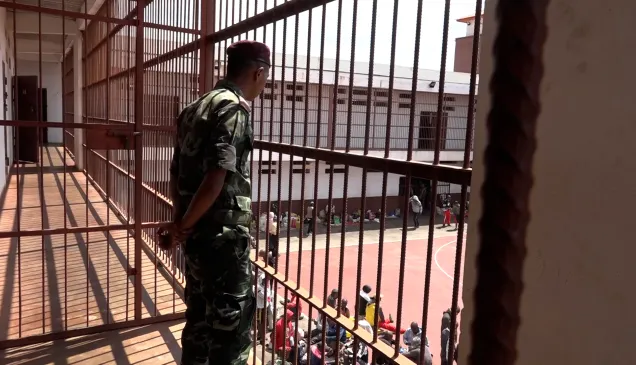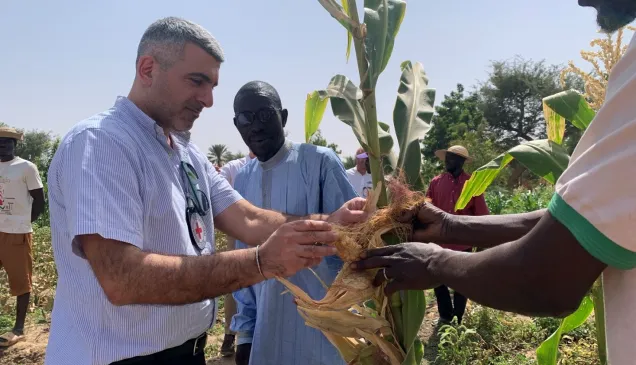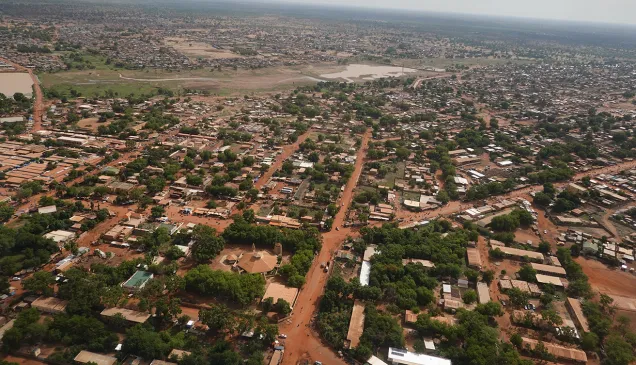Healing hidden wounds: Surviving armed violence in Burkina Faso
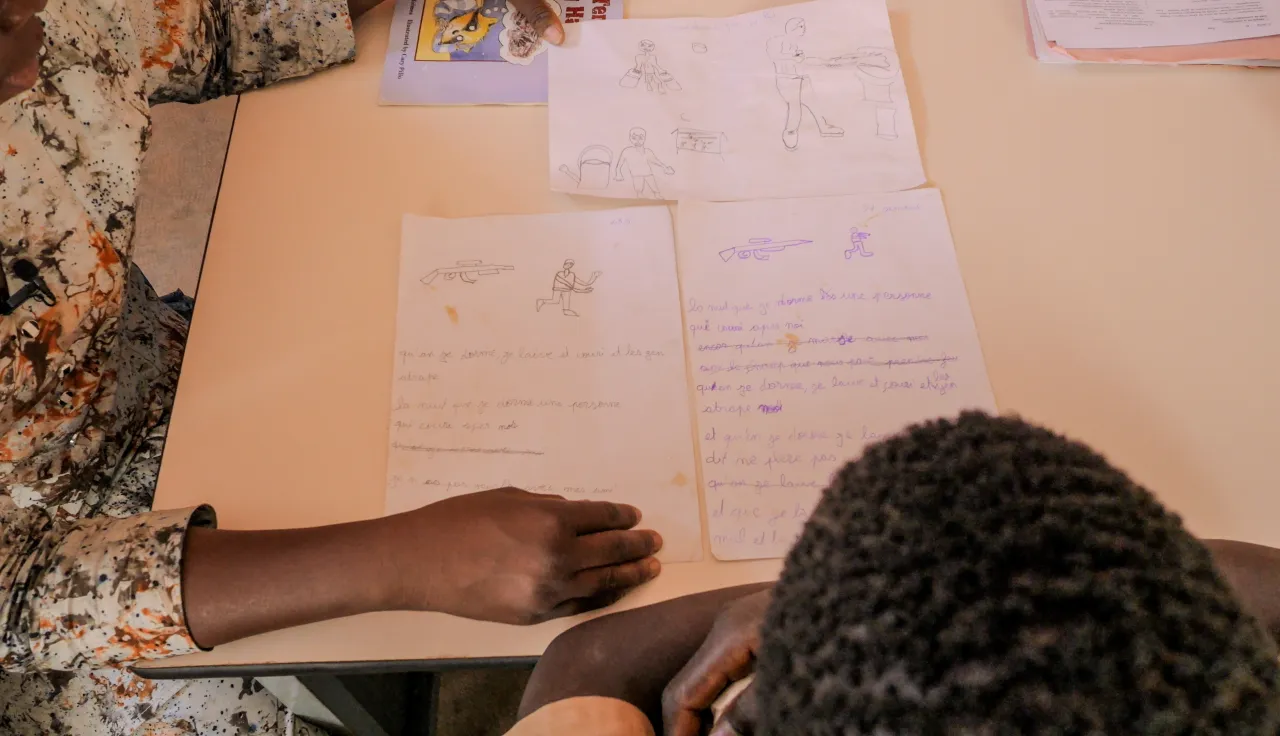
Post-traumatic stress, insomnia, becoming withdrawn and irritable … For people who have witnessed violence, there are the hidden wounds that have a serious impact on their lives – and civilians in Burkina Faso are sadly no stranger to them.
More than two million people in Burkina Faso have been forced to flee their homes, taking with them a few belongings and a lot of painful memories.
Aly: Survivor's guilt
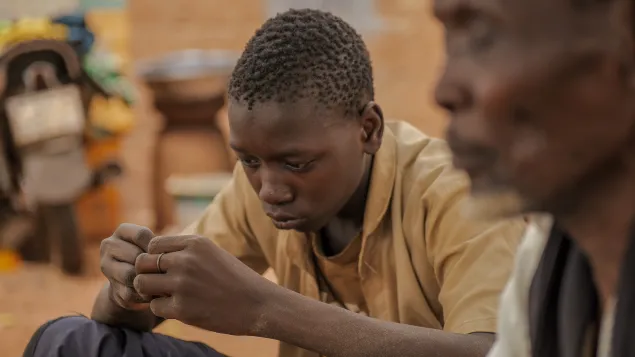
Aly with his father in March 2024.
Aly is 15 years old. He and his family had to flee their home three years ago. They sought refuge in a densely populated settlement for displaced people on the outskirts of Ouahigouya in north-western Burkina Faso. Ever since, Aly has been haunted by his memories and has suffered insomnia and night terrors.
We started off by trying traditional medicine and then modern medicine, but with no success," explained his father.
Then, Aly's mother attended a session on mental health, which was being held in the settlement where they were living, and she decided to sign up for therapy at the ICRC-supported Lazaré medical centre.
In 2023, the ICRC observed an increasing number of children traumatized by the violence they had witnessed. In response, we set up a project in Ouahigouya and Dori that allows children to express their emotions through drawing, writing and storytelling.
In Ouahigouya, getting psychological support is a real challenge. There is a regional university hospital, but it only treats the most serious cases.
When he arrived at the Lazaré medical centre, young Aly didn't say much. "He was feeling guilty. Some of his friends had been left behind and he had a lot of negative emotions. Our job was to help him untangle those emotions through drawing and writing."
Over the course of the sessions, Aly managed to verbalize his fears and express his anxieties through his drawings. Gradually, he was able to resume a semblance of a normal life.
Now, he has gone back to school and found new friends, and the night terrors that disrupted his sleep have stopped.
Safy: "Mother courage" and her seven children
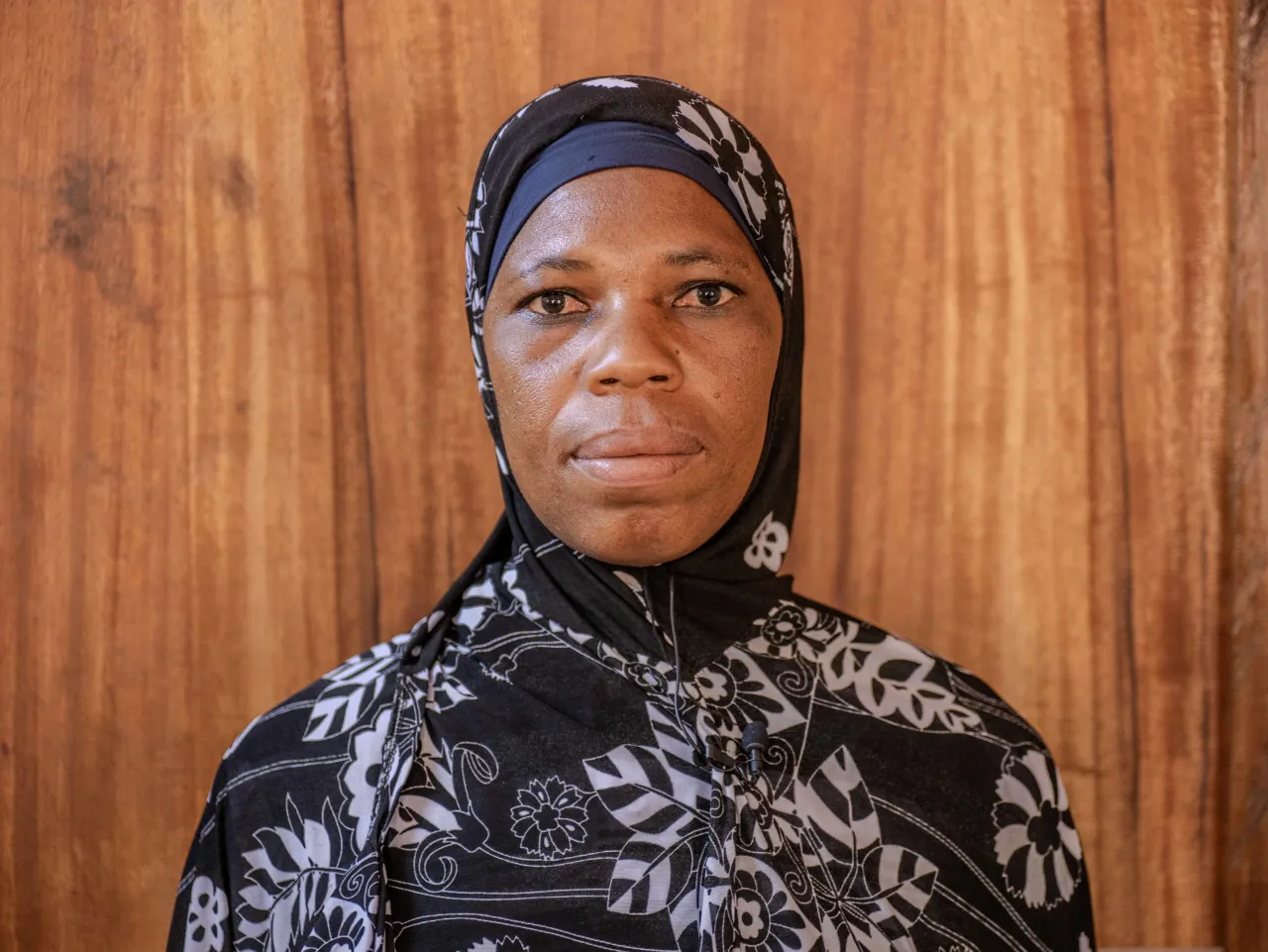
Safy in Ouahigouya, March 2024.
Safy was also traumatized and displaced by the violence she experienced and witnessed. One morning, a group of armed men entered the village where she lived and started killing people. Safy and her relatives managed to hide but were eventually found. She survived by the skin of her teeth, but her husband and his other wives did not; they were all killed.
Safy decided to leave with her four children and her co-wives' three children, who were now orphans. Traumatized, with no money and seven children to look after, Safy was desperate. She lost interest in life and her children but felt a great sense of guilt: "It's a mother's role," she said about being there for her children.
The children were also traumatized; they cried in their sleep and became withdrawn.
In Ouahigouya, she met health workers trained by the ICRC. She was receptive to their support and began counselling sessions with them, at a health-care centre or at home.
The road to recovery is going to be a long one for Safy, but she has already seen a benefit in terms of a calmer relationship with the children. They are also feeling less isolated and are back in school.
Mr Sankara: Light at the end of the tunnel

Mr Sankara in Ouahigouya, March 2024.
Mr Sankara's wide smile belies the fact that he is haunted by memories from the past, particularly the attack on his village in which he lost two uncles and his youngest brother. In all, 13 people lost their lives.
To escape the violence, he fled with his wife and children, hiding in the fields they farmed. He was about to bring the harvest in, but he had to leave it all behind to find somewhere safe to live. He too ended up in Ouahigouya.
Once safe, the anxiety kicked in. Insomnia, night terrors and agonizing thoughts; this farmer could not escape the past. In Ouahigouya, he quickly received care from the Burkinabe Red Cross Society and psychologists. Without the sessions, he admits he would probably have lost his mind. Now he knows how to identify the symptoms of post-traumatic stress in himself and his children. They too are sleeping well again.
We ended by asking Mr Sankara if he would like to go back home. The farmer, who feels a great attachment to his land, replies: "Wherever we are, we always prefer to be at home."
In the second half of 2023, about 200 children in Ouahigouya received psychological care in the Lazaré medical centre and a home follow-up by health-care workers. Of those 200 children, 68 completed their psychological care programme. In 2023, 899 people in Burkina Faso received psychological support in health centres supported by the ICRC.
This article was first published on the ICRC Paris delegation's blog "L'Humanitaire dans tous ses Etats" (in French).

